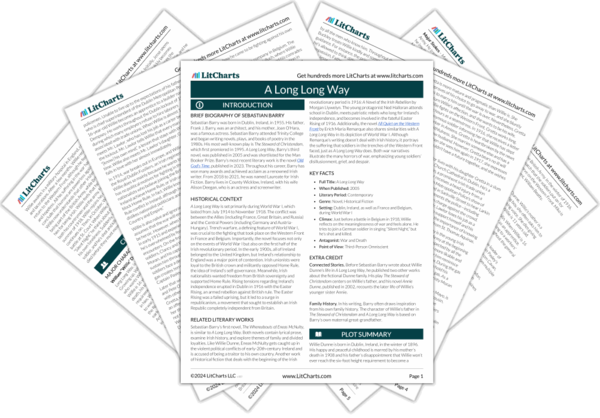O’Hara’s confession forces Willie to question whether he can still love his fellow soldier. Moreover, Willie also reconsiders his understanding of human nature. He doesn’t know if he should believe that any person might naturally be capable of committing such cruel violence, or if he should conclude that he, O’Hara, and other soldiers are now more capable of evil because they’ve been corrupted by war. Both possibilities disturb Willie.
